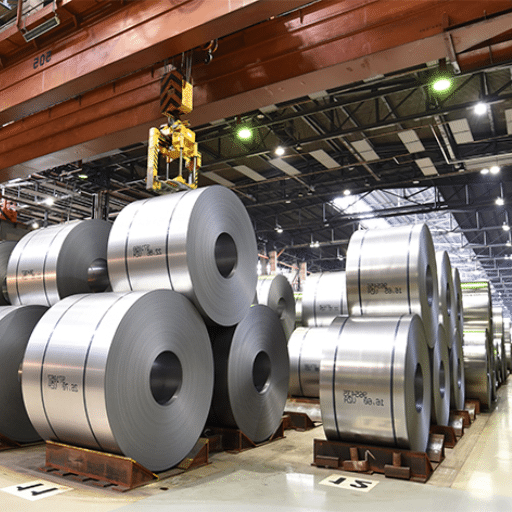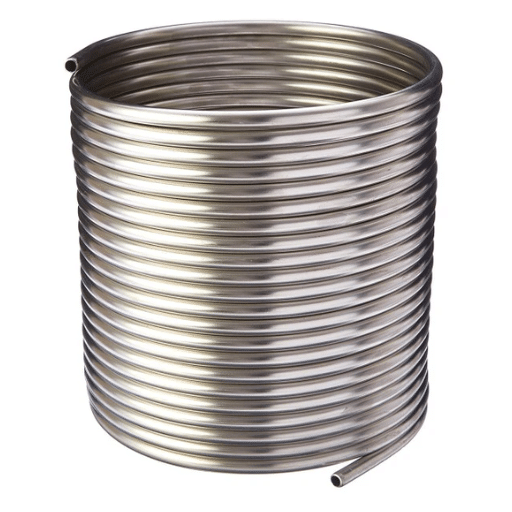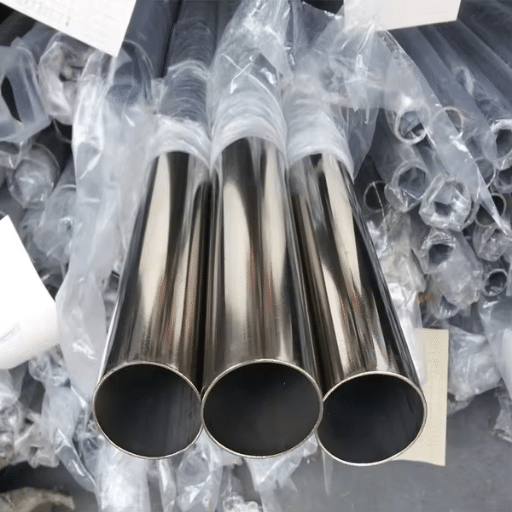The task of acquiring copper coils for specific requirements and specialized uses requires selecting the best manufacturer to ensure things work well, reliably, and are customized accordingly. Depending on whether the industry requires intricately designed coils for HVAC systems, electronic wiring, or industrial machinery, the ability to produce to very specific design and operational needs can greatly affect the efficiency of operations. This article discussing how best to select a copper coil manufacturer touches on areas such as more advanced production processes, material quality, and customer assistance. By the time you finish reading this article, you will be able to discern how to source a partner proper to your own unique project requirements while upholding the best standards within the industry.
The Importance of Copper Coils in Various Industries
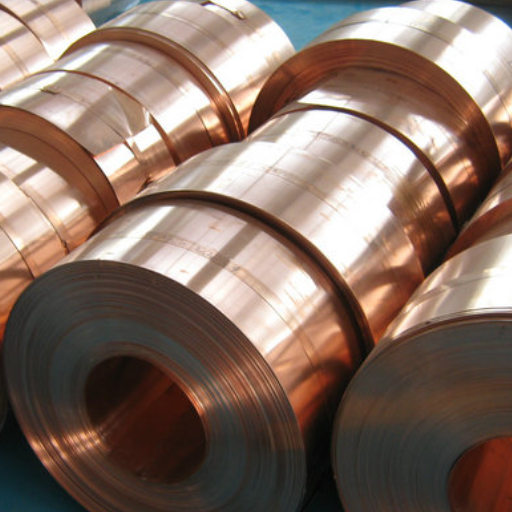
When it comes to copper coils, they find their use all over industries and offer the best thermal conductivity, electrical conductivity, and durability. Meanwhile, in HVAC, copper coils are used to transfer heat efficiently and thereby regulate temperature, the proper temperature, for residential, commercial, and industrial purposes. Copper coils are used by the energy sector in transformers and electric motors to lessen energy loss and maximize efficiency. Copper coils are utilized in performance and sustainability, specifically in the green usage of vehicles or the automotive industry. Copper coils, with their versatility and dependability, stand as a strong backbone in present-day infrastructure and modernization.
Copper Coils in HVAC Systems
Being a highly conductive metal that resists corrosion and ages well, copper coils are the heart of an HVAC system. Therefore, in any heat transfer operation involving evaporating or condensing fluids, copper finds a place. Studies have revealed that a copper coil can significantly enhance heat-transfer performance compared to materials like aluminum. Since copper is comparatively stronger, it allows for thinner walls in the coils, thereby reducing weight and offering a compact system without compromising efficiency or reliability.
The antimicrobial properties of copper are actively incorporated into modern HVAC systems, helping to combat an increase in microbial growth on coil surfaces and thereby enhancing air quality and the overall lifespan of the system. Furthermore, the recycling properties of copper align with sustainability goals, consolidating copper coils as a green choice. Thanks to the advancements in microgroove copper tube technology, HVAC engineers are now able to develop highly efficient HVAC systems that fulfill the ever-increasing energy efficiency requirements with a reduction in operating expenses. The combination of performance, durability, and sustainability aspects has earned copper’s esteemed place in HVAC technology innovations.
Copper Coils in Electronics
A smaller and yet more accurate copper coil has been manufactured recently as a result of the miniaturization process, thus giving support to compact and portable devices, such as smartphones and wearables. The micro-coil winding technique allows better performance while minimizing space usage in devices so they can meet the demands for lightweight and powerful electronics. Wireless charging technology will see another use for copper coils as an energy transfer medium of high efficiency through electromagnetic induction. Taken together, these strengths make copper coils indispensable to modern electronics.
Copper Coils for Renewable Energy Applications
How to Select the Best Copper Coil Manufacturer?
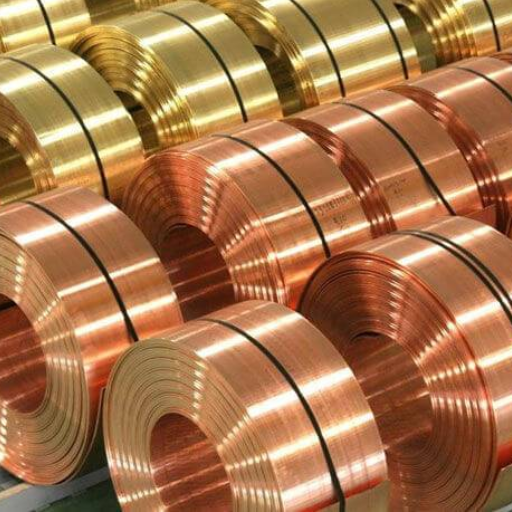
- Quality Standards
The manufacturer should adhere to an ISO 9001 standard or something that is regarded in the industry as a certification, ensuring the quality of copper coils meets specific performance standards such as conductivity and durability.
- Manufacturing Expertise
Look out for manufacturers who have previously made copper coils for your specific purpose, whether energy systems, electronics, or for heavy industry. Experience generally means better performance and reliability.
- Material Sourcing
A reputable manufacturer should be able to supply grade pure copper and disclose sourcing practices. By the way, whether it is ethically and sustainability sourced is something worth considering in today’s supply chains.
- Customization Options
If you need some specific designs, sizes, or coil configurations for your project, choose a manufacturer with the capability of customized solutions to meet those special requirements.
- Delivery and Lead Times
Look at the production capacity and reliability of deliveries, particularly where time is of the essence in your project. Ideally, the manufacturers should always uphold their promises to deliver on time, as this will significantly affect your project schedule.
- Cost Efficiency and Value
Pricing should be compared among manufacturers, but you should take a hard look at what you have received for your investment. If purchasing more efficient, durable, and higher-quality coils means paying a bit more for them initially, then that could be the justified price, seeing as it will reduce your maintenance and replacement needs later on.
Assessing Certifications and Standards
It is imperative, while evaluating coil manufacturers, to verify compliance with industry-recognized certifications and standards. Such certifications and standards as ISO 9001 denote quality management systems of stringent requirements, thus representing a manufacturer’s commitment to consistent product quality and customer satisfaction. In addition, performance and safety standards laid down by organizations such as ASHRAE (American Society of Heating, Refrigerating and Air-Conditioning Engineers), evaluate the technical design of HVAC components. Compliance, in addition to lending credibility to the products, means they meet requirements of environmental regulation where applicable, such as RoHS or REACH directives. Scrutiny of certifications and standards enables the selection of manufacturers who provide high-performance coils designed to meet both operational and regulatory demands.
Evaluating Production Capabilities
Importance of Customer Support
Benefits of High-Quality Custom Copper Coils
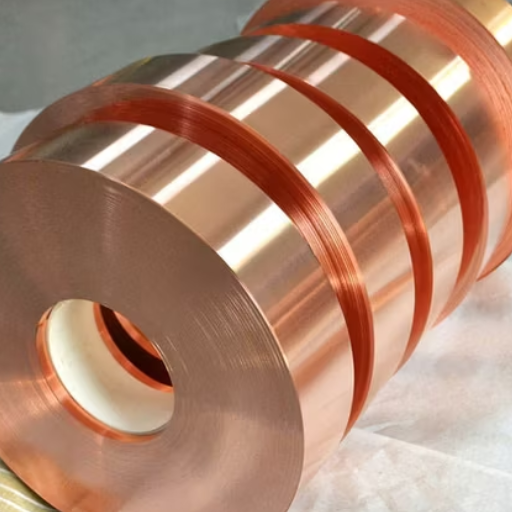
- Superior Thermal Conductivity
Copper has a thermal conductivity value of around 400 W/m·K, while aluminum is 205 W/m·K. The copper coil thus has very efficient heat transfer capabilities, allowing for lower power consumption in cooling and heating systems.
- Electrical Efficiency
In the electrical system, by virtue of having a conductivity of as much as 59 × 10⁶ S/m, copper coils largely prevent energy losses. High conductivity is that which guarantees transformers, inductors, and electric motors remain high-performing and competitive in ensuring the reliability of the entire system.
- Customized Design for Specific Applications
Custom copper coils are manufactured to extremely fine tolerances to fit perfectly within the system or device, with the intent of fundamentally improving operational efficiency and drastically reducing any form of system alterations or adjustments during installation.
- Corrosion Resistance and Durability
Corrosion resistance inherent in copper ensures long-term reliability in those environments that expose the distillation unit to moisture, chemicals, temperature changes, etc., thereby reducing the costs of maintenance in engineering and industrial systems.
- Compact and Space-Efficient Configurations
Applications where accommodating space is a constraint are, therefore, to benefit much from high conductivity of copper coils, which can thus be designed to be much more compact without compromising any performance.
Enhanced Durability and Longevity
In terms of reliability and durability, copper coils have changing particularly due to their innate corrosion resistance and resistance to fatigue. Copper is a material capable of maintaining structural and functional integrity under corrosive environments more than most materials in cases where there is high humidity, temperature extremes, and abrasive chemical conditions. Advances such as precision welding and alloy coating protection brought to the manufacturing processes have extended the lifespan of copper coils, bestowing values of reliability on copper coils for critical applications. Additionally, the amenability of copper to intricate designs that maintain their mechanical strength over time has contributed to a decreased rate of wear over long periods; all of these factors contribute to enhanced operational efficiency and minimized downtime in industrial and technical environments.
Improved Efficiency and Performance
Copper coils are limited because of superior thermal conductivity, which ensures better heat transfer in temporary engineering systems. A particular advantage is the ability to achieve rapid thermal equilibrium, thus providing constant and reliable temperature control in air-conditioning, refrigeration, and power-generation applications. Various studies and industrial benchmarks have demonstrated that copper is a better conductor than many of its competitors, such as aluminum, by giant leaps, allowing the design of systems that are compact yet resource-efficient without compromising on system performance measures.
The inherent corrosion resistance, with further improvement through anti-corrosion coatings, of copper ensures its suitability for high-performance systems. The prevention of environmental degradation through corrosion also works to reduce system maintenance requirements and, thus, extends the life of equipment being subjected to moisture, chemicals, or a combination of varying temperatures in corrosive environments. From performance data of materials, one can gather that copper-based components retain their mechanical properties and structural integrity after prolonged exposures to such harsh environments, therefore ensuring consistent operational output through extended periods.
Cost-Effectiveness in the Long Run
Comparative Analysis of Leading Copper Coil Manufacturers
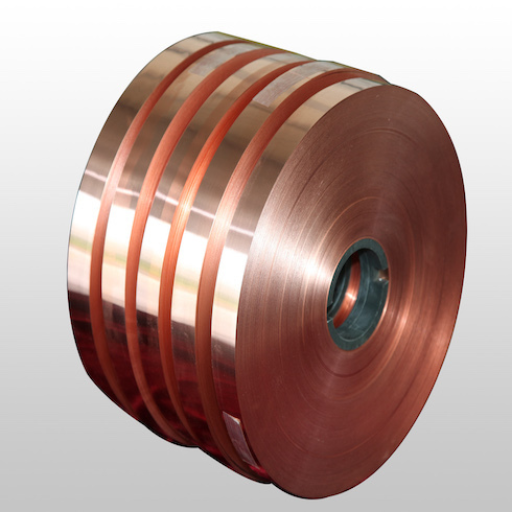
A critical analysis of the leading copper coil manufacturers would include the following vital points for their suitability in particular applications:
- Product Quality and Reliability
A viable one would consider manufacturers that try to achieve the highest level of copper coils meeting industry standards and criteria, such as high conductivity and durability. The likes of Wieland Group and KME are manufacturers renowned for consistent quality and advanced processes.
- Customization Capabilities
Then there are the manufacturers like Luvata and Heyco that customize their designs to the precise requirements of the client, including dimensions and alloy compositions.
- Production Capacity and Lead Time
Mitsubishi Materials, in its turn, as a global player, is able to marshal large production capacities without affecting lead times, thereby ensuring reliable supply chains for industries where demand is very high.
- Sustainability Initiatives
A new green wave is sweeping the industry. A prime example would be Aurubis with sustainable methods and recycling at the forefront.
- Cost-Effectiveness
Pricing of the product varies, however, depending on the volume ordered and the choices of specifications of manufacturing processes to be used. Mueller Industries has strived to place emphasis on the balance between cost and value and to offer pricing for products that are highly competitive and yet of superior quality to perform for a long service life.
In the end, deciding on the manufacturer has to consider all of these factors in relation to the project specifications and long-term befits during operations.
Comparing Top Copper Coil Manufacturers
|
Manufacturer |
Key Features |
Global Reach |
Sustainability Initiatives |
Notable Industries Served |
Price Competitiveness |
|---|---|---|---|---|---|
|
Wieland Group |
High-quality copper solutions |
Extensive |
Focus on eco-friendly processes |
Automotive, Electrical, HVAC |
Competitive pricing |
|
KME Group |
Wide range of copper products |
Global operations |
Dedicated green manufacturing |
Construction, Energy, Transport |
Moderate pricing |
|
Aurubis |
Largest copper recycler globally |
Worldwide presence |
Leader in circular economy |
Electronics, Automotive, Architecture |
Premium pricing |
|
Mitsubishi Materials |
Advanced production capabilities |
Asia, U.S., Europe |
Commitment to carbon neutrality |
Electronics, Telecommunications |
Competitive for premium quality |
|
Luvata |
Custom copper solutions |
International reach |
Focus on reducing carbon footprint |
Healthcare, Renewable Energy |
Moderate to high pricing |
|
Mueller Industries |
Known for durability and innovation |
North America, Europe |
Enhanced resource efficiency |
HVAC, Plumbing, Industrial |
Cost-effective solutions |
|
Golden Dragon |
Specializes in precision copper tubing |
Strong in Asia |
Focus on energy conservation |
HVACR, Electronics |
Low-cost production |
Product Range and Customization Options
Mueller Streamline Co. has successfully set itself apart by way of a vast offering of copper fittings, piping, and accessories to accommodate the rigorous demands of present-day infrastructural applications. Besides the standard offerings, they boast highly advanced technology applicable to specialized applications in health care and renewable energy domains, where accuracy and durability are essential. The advancement in processes also cuts down material waste and generates the efficiencies needed to support sustainability objectives.
Offering HVAC, plumbing, and industrial products under a wide purview, Mueller Industries exemplifies flexibility by providing custom configurations of pipes and fittings engineered to work efficiently in diverse environmental conditions. Their strong reputation rests on finding a balance between reasonable cost and innovative materials, making it possible for them to develop solutions suited for both vast and specialized industrial markets.
Golden Dragon caters heavily to precision-focused markets while concentrating on energy-efficient copper tubing for HVACR systems and cutting-edge electronics. Low-cost production style helps them provide tubing in customized sizes and specifications for unique manufacturing requirements, mostly in regions of high demand like Asia. This way, they maximize both cheaper cost and operational efficiency without compromising quality.
Pricing Strategies and Customer Reviews
Golden Dragon’s competitive advantage allows it to quickly scale production and acquire raw materials at favorable costs to stay well below the market price for pertinent distinction of copper tubing. Through establishing common manufacturer procedures and maximization of resource allocation, the company offers separate sets of price scales to suit manufacturers operating at great volumes as well as smaller firms. They obviously give great discounts to those buying in large volumes, whereas smaller parties can take advantage of cost-competitive quality solutions custom-fitted to their specified applications.
Recent Trends in Copper Coil Manufacturing
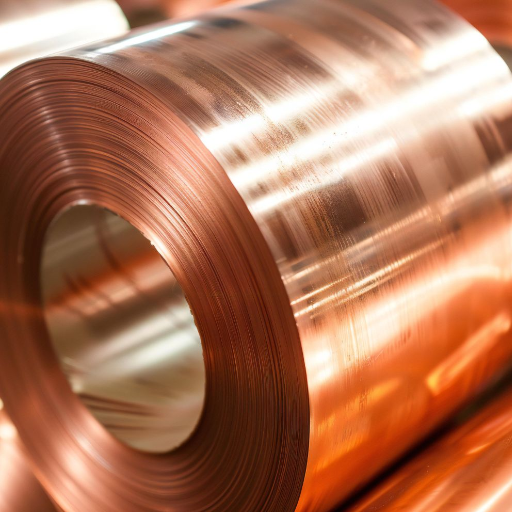
Copper coil manufacturers have faced a significant transformation brought about by the rapid advancement of technology, as well as the philosophical quest for an environmentally friendly industrial approach. Automation is further simplifying production, lessening the labor costs, and allowing greater precision in coil dimensions. Additionally, there has been a growing acceptance among manufacturers of energy-saving operations, including those involving closed-loop recycling processes, to reduce waste and minimize environmental impact. The high-purity copper alloys have gone mainstream lately, mostly for use in superior conductivity and thermal performance-requiring applications such as electric vehicles and renewable energy systems. Such trends show the higher design of innovation and environmental consciousness while trying to cater to the new demands of high-performance applications.
Eco-Friendly Production Methods
Recent advancements in eco-friendly production have aimed at lessening the use of resources while improving manufacturing efficiency. In large part, this consists of energy-efficient machinery, reducing power draw with high outputs. Another trend alongside this line is industries going green: some facilities are now being powered by solar or wind energy, thereby greatly cutting down on greenhouse gas emissions.
Water conservation remains a massive concern in this field. For example, closed-loop water systems are being used, which involve water recycling and reuse within the production facility while severely minimizing the waste of water. On the other hand, some manufacturers are currently adding another kind of input material, basing production on bio-based and biodegradable materials, hence making the industry greener by reducing pollution.
Further, owing to data-driven technologies, including IoT and advanced analytics, inefficiencies enter into production processes and are monitored and minimized. Such innovations enable real-time tracking of resource utilization, waste management, and carbon emissions so actual insights can be drawn upon to boost sustainability. These environmentally conscious approaches have essentially demonstrated that industries are building a synergy between technology and green practices in pursuit of global environmental objectives.
Technological Innovations in Coil Design
Recent coil design technology has witnessed an array of innovations in coil design to build efficiency, performance, and sustainability in different applications. One of these developments is the increasing use of computational simulation tools, including finite element analysis (FEA); hence, engineers effectively model both the electromagnetic fields and the thermal dynamics so as to arrive at a coil geometry that is highly optimized in terms of energy loss minimization and transfer of energy efficiencies.
Some others include the use of novel materials, including high-temperature superconductor (HTS), which drastically reduce resistive losses over traditional materials. Such advances enable coils that operate at higher currents and magnetic fields, thereby drastically improving performance in critical systems such as power generation and magnetic resonance imaging (MRI).
Besides, automation and additive manufacturing are being applied to optimize coil production processes. For instance, 3D printing of coil molds and components facilitates rapid prototyping and customization, thus reducing lead time and costs in manufacturing. These technologies promote efficiency in the production process; however, they also offer the possibility of designing compact and lightweight coils that are much sought after in aerospace and automotive applications.
Last but not least, with the help of IoT, advanced monitoring systems now provide real-time data about coil performance, which, in turn, empowers predictive maintenance and thereby helps extend the working life of the equipment. Collectively, advances in technology have ushered in a paradigm shift in coil design so industries can address sustainability issues with growing demands of efficiency and reliability.
Reference Sources
-
“Recent advances of titanium alloy powder production by ceramic-free inert gas atomization”
- Key Findings: This study explores the use of non-insulated copper coils in the production of titanium alloy powders. It highlights the challenges of spark discharge and manufacturing tolerances in coil design.
- Read more
-
“Improved magnetic behavior of hemicycle PM motor via stator modification”
- Key Findings: The study focuses on the use of copper coils in stator teeth to enhance magnetic behavior and address manufacturing constraints like fabrication complexity.
- Read more
-
“Multiphysics modeling of magnetorheological dampers”
- Key Findings: Copper coils are used in axial configurations for dampers, chosen for their ease of manufacturing and effective magnetic field generation.
- Read more
Frequently Asked Questions (FAQs)
Q: What are the advantages of using copper coils in manufacturing?
A: Copper coils are widely favored in various industries due to their excellent electrical and thermal conductivity. They are often used in applications requiring power transmission and cooling systems, making them crucial for efficient performance. The thermal conductivity and corrosion resistance of copper ensure durability, especially in challenging environments. Additionally, custom copper coils can be tailored to meet specific project requirements, enhancing their versatility. Overall, the benefits of copper coils make them a preferred choice for manufacturers and suppliers across the industrial sector.
Q: How do copper coil manufacturers ensure quality in their products?
A: Leading copper coil manufacturers implement strict quality control measures throughout the coil manufacturing process. This includes sourcing high-grade copper that meets ASTM standards, ensuring optimal performance in various applications. Manufacturers often use advanced machinery for coil winding and annealing processes, which significantly affect the final product’s quality. They may also offer a wide range of copper products, including custom coils that are designed to meet specific client needs. Regular testing for electrical and thermal conductivity is also performed to ensure that the coils meet industry standards.
Q: What types of custom coils can be produced by copper coil suppliers?
A: Copper coil suppliers provide a variety of custom coil manufacturing options to cater to diverse industrial needs. These include bobbin wound coils, specialty coils for unique applications, and wire coils that can be configured into several shapes and sizes. Additionally, beryllium copper and bronze and copper combinations are available for applications requiring enhanced performance. The ability to manufacture custom coils using recycled materials also appeals to environmentally conscious companies. Ultimately, the options for custom coils are extensive, allowing businesses to find solutions that fit their specific requirements.
Q: How can I request a quote from copper coil manufacturers?
A: To request a quote from copper coil manufacturers, you typically need to provide details about your coil needs. This includes specifications such as coil dimensions, materials required, and any necessary customizations. Most manufacturers have an easy-to-use online form or contact method on their website, where you can submit your request. It’s beneficial to include information about the intended application, as this helps manufacturers tailor their offerings. After submitting your request, you can expect a prompt response with pricing and manufacturing capabilities. Engaging directly with a coil company can also provide insights into additional services they offer, such as assembly services and secondary services.
Q: What are the common applications for copper coils in the industrial sector?
A: Copper coils find extensive applications in various segments of the industrial sector. They are commonly used in power transmission systems, where their superior electrical conductivity is essential. Cooling coils made from copper are vital for HVAC systems, ensuring efficient temperature regulation. Additionally, they are utilized in induction coils for heating applications and in RF coils for telecommunications. The versatility of copper coils allows them to be integrated into machinery, systems, and equipment across multiple industries, including transportation, electrical, and manufacturing sectors.

